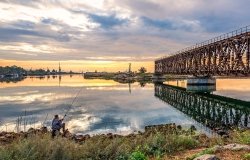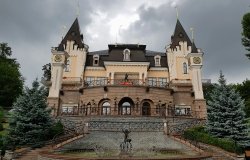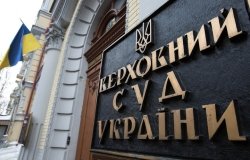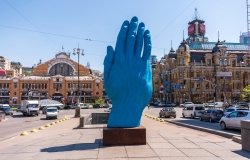
A blog of the Kennan Institute
Odesa: More of a Ukrainian Past than Before 2022
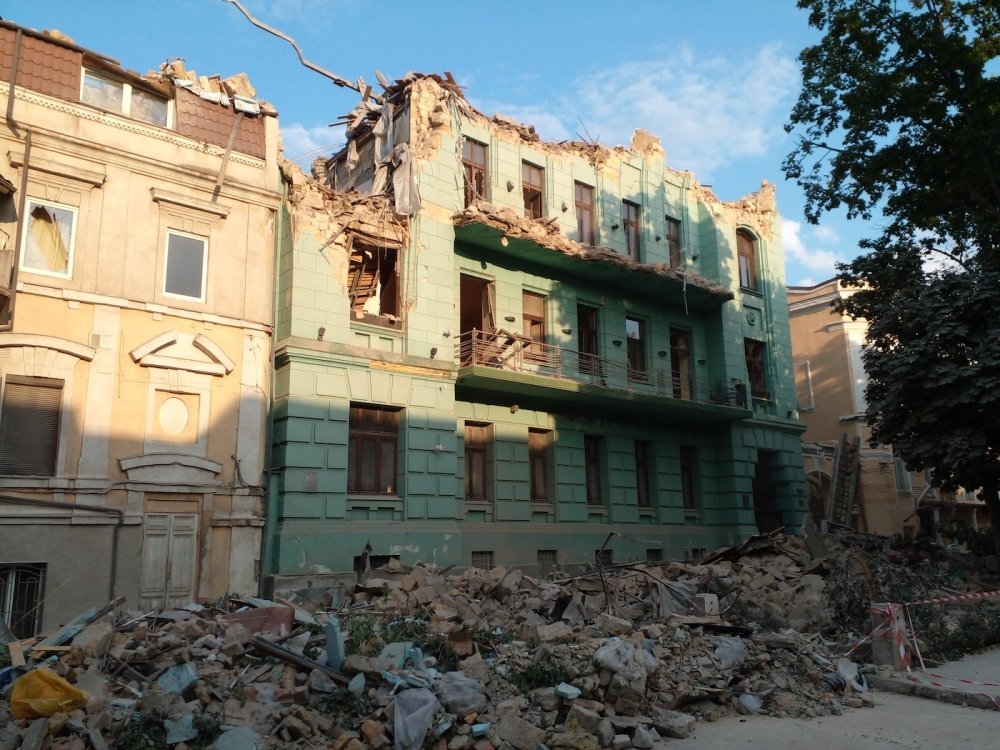
Since its founding by Catherine the Great in 1794 as an outpost of her empire, Odesa has been a multicultural entrepôt, bringing together people from all over. Once among the Russian Empire’s largest cities and most important ports, Odesa lost some of its aura following World War II. Nonetheless, sailors from around the world continued to call out “Odesa Mama” whenever they came to call.
Odesa regained its maritime importance following Ukrainian independence, as the new country’s largest port. The city became home to large number of immigrant traders from Africa and Central and South Asia throughout the 1990s into the early 2000s. National customs and local police authorities exercised only limited control over the sprawling informal markets outside of town. The city has always welcomed all sorts of people and continued to do so into its third century.
Russian remained the city’s lingua franca, and Ukrainians remained a distinct minority in a town dominated at various times by Russian, Greek, Italian, Polish, and Jewish settlers. Present-day Russians interpreted the city’s multicultural realities to mean that the town should be theirs. Present-day Ukrainians admit to feeling, at times, that it was not quite Ukrainian. All of this changed with the Russian full-scale invasion of 2022.
For more than two years, Russian artillery and rockets have rained down on Odesa with destructive regularity. These barrages have solidified local—and national—identities as Ukrainian. Odesa now overflows with Ukrainian patriots. Claiming the city as their own, many are discovering that their town has had deep ties to Ukrainian culture all along.
For example, the Odesa Literature Museum, founded a half-century ago in the former Sikar Mansion, is a remarkable institution that continues to uncover deep Ukrainian linkages to local urban culture (see June 24, 2022 blog post). The Russian poet Aleksandr Pushkin stayed in the building in 1823 when it was Hotel du Nord, a connection which has been celebrated with the museum attaching Pushkin’s name to its own.
Throughout its history, the museum has gathered artifacts and archives related to writers in several languages who have been born, worked, or sojourned in the city. These collections support various exhibits, lectures, concerts, and publication efforts that appropriately proclaim Odesa as a leading global literary hot spot. The museum’s heroic staff has kept it open throughout much of the past two years, even as Russian shelling has damaged its facilities.
This spring, the museum mounted a major exhibition of works by and about Ukraine’s national bard Taras Shevchenko, highlighting connections with Odesa. These artifacts, selected to honor the 210th anniversary of Shevchenko’s birth into serfdom, included first editions dating from the 19th century about his life, his artwork (he was a painter as well as a poet), and his importance for Ukraine. Correspondence between Shevchenko, who had been exiled to the Orsk Fortress in the Urals because of his expressions of Ukrainian nationalism, and Odesan writer Andrii Lyzogub offers insight into Shevchenko’s travails while incarcerated.
Up to now, Shevchenko’s ties to Odesa often received scant attention in comparison to the city’s place in the lives of prominent Russian and Jewish authors. By mounting this exhibition, the museum casts light on the city’s too-often-ignored role in the emergence of a Ukrainian literary canon. The exhibit is an example of a recalibration of identity that has been playing out throughout Ukraine since the 2022 Russian invasion.
Ukrainians of all backgrounds are reexamining who they are and who they are not. Once-ignored connections to the country’s past assume new meaning; urban cultures associated with Russia appear to have long-standing connections with Ukraine. Ukrainians are not reinventing a past that suits the moment. Rather, they are discovering a past that was always there but submerged under broader imperial, Soviet, and Russian chronicles. As the Odesa Literature Museum shows, Odesa will be Ukrainian after this war has ended in part because it always has been.
The opinions expressed in this article are those solely of the author and do not reflect the views of the Kennan Institute
See our newest content first.
Subscribe to receive the latest analysis from Focus Ukraine
About the Author

Blair A. Ruble
Former Wilson Center Vice President for Programs (2014-2017); Director of the Comparative Urban Studies Program/Urban Sustainability Laboratory (1992-2017); Director of the Kennan Institute for Advanced Russian Studies (1989-2012) and Director of the Program on Global Sustainability and Resilience (2012-2014)

Kennan Institute
The Kennan Institute is the premier US center for advanced research on Eurasia and the oldest and largest regional program at the Woodrow Wilson International Center for Scholars. The Kennan Institute is committed to improving American understanding of Russia, Ukraine, Central Asia, the South Caucasus, and the surrounding region though research and exchange. Read more



